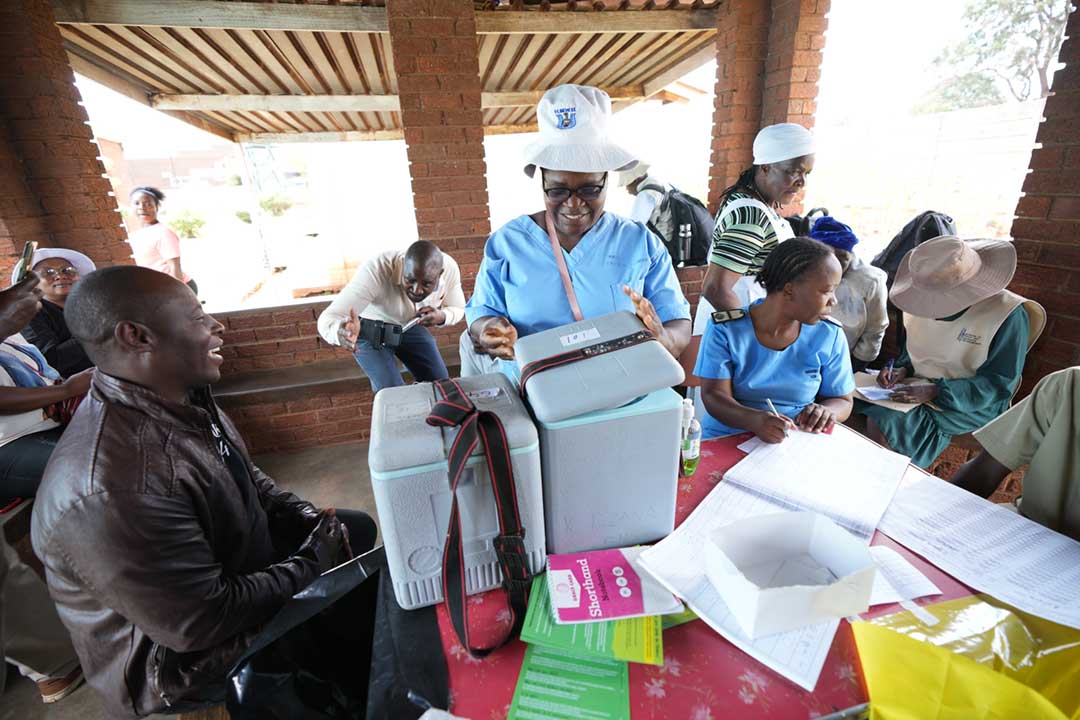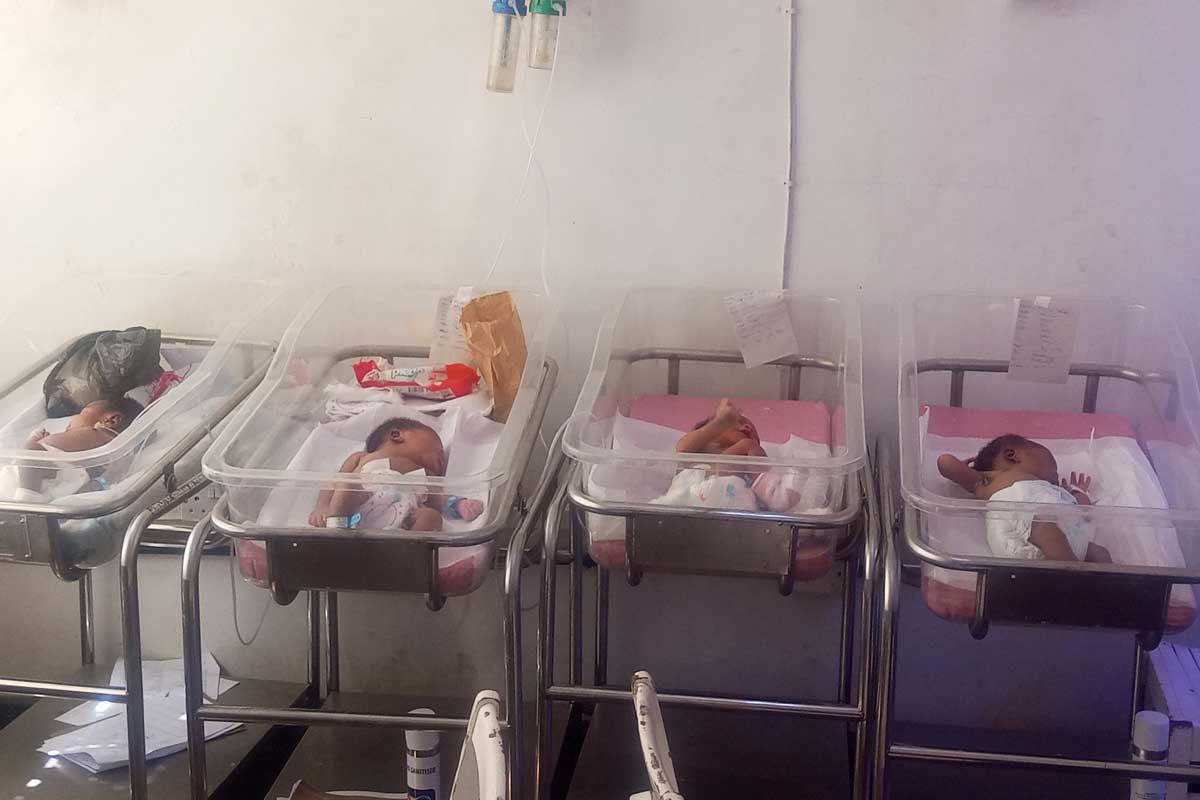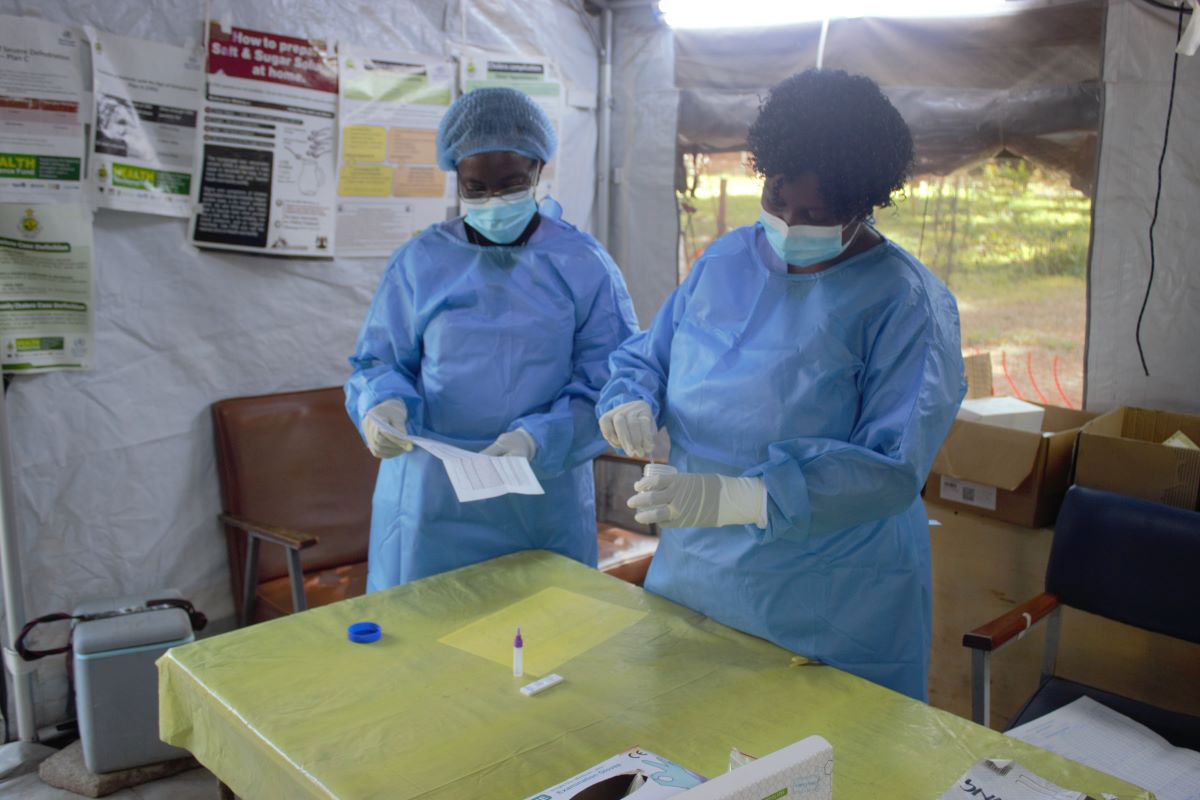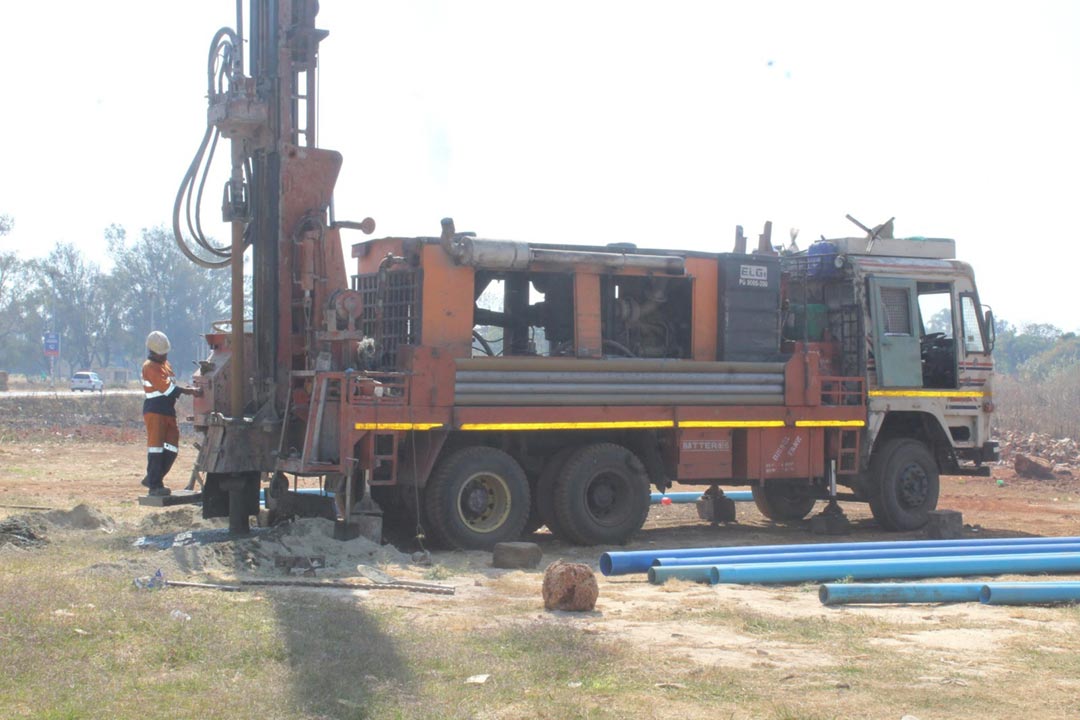Outbreak-hit Zimbabweans embrace cholera vaccines with open arms
Fears of a repeat of 2008’s devastating epidemic recede as residents welcome roll-out of 2.3 million doses of oral cholera vaccine.
- 16 February 2024
- 6 min read
- by Elia Ntali

Two weeks into Zimbabwe's large-scale oral cholera vaccination drive, health leaders say uptake has been "encouraging" in targeted zones, with early signs of slowing transmission, as outbreak-hit populations in the nation's capital describe a sense of relief.
The deadly diarrhoeal infection, which spreads via contaminated food and water, has killed more than 400 people in Zimbabwe since February 2023, infecting well over 22,000 in a year-long rampage.
"I can remember the 2008 cholera outbreak and I could not risk my life by shunning the vaccines because of what I saw then."
- Cleopas Dzamtusana, Kuwadzana, Harare
Measures ranging from curbs on gatherings to borehole-drilling for safer water have fallen short of conquering the outbreak, but the allocation of more than 2.3 million vaccine doses from the Gavi-supported Global Oral Cholera Vaccine (OCV) Stockpile, is raising hopes of a return to normal life.
"A huge relief"
In Harare's Kuwadzana suburb, the cholera hotspot that saw the first dose of the current campaign administered on 29 January, 65-year-old Cleopas Dzamutsana was taking no chances.
"I can remember the 2008 cholera outbreak and I could not risk my life by shunning the vaccines because of what I saw then," he said. That epidemic, Zimbabwe's deadliest, saw no reactive mass vaccination campaign and claimed nearly 4,300 lives. Researchers have estimated that reactive vaccination could have averted between 1,320 and 2,920 fatalities in that complex public health crisis.
"It is a relief that the government has taken this route [the vaccine roll-out] to prevent the worst from happening. I am excited to have been vaccinated together with my family," Dzamutsana said.
Stella Sibindi, aged 38, of Glen View suburb in the Zimbabwean capital, said she felt the vaccines were long overdue.
"This is a huge relief to us and other affected communities. Since the outbreak we have been living in fear. I remember we lost three members of the same family within a space of two weeks, and it has been a disturbing moment for our community."
The spectre of 2008 haunted Sibindi, who speculated that outright catastrophe had been kept at bay by the government's preventive measures.
Still, she said, "Our way of life has been disrupted; we now spend most of our time indoors. We hope the coming in of these vaccines will return our lives to normal."
Ask an expert: Francisco Luquero, Gavi's Head of High-Impact Outbreaks
VW: Multiple countries in the region are currently seeing large-scale cholera outbreaks. Do we have enough vaccines to contain the crises?
FL: Vaccine supply has expanded massively in the last years. The global cholera stockpile sent out half a million doses of oral cholera vaccine in 2013. Last year, it dispatched 35 million doses. This year and next year will maintain the increasing trend, with increased volumes of vaccine flowing to countries.
The increase in demand is explained by an alarming growth in the number and size of outbreaks, along with an increased interest on the part of country governments to deploy vaccines to help curb those epidemics.
It's a good thing that the vaccines are being put to use. But they aren't a silver bullet, and shouldn't be the only tool deployed against cholera, which is a disease we've known how to keep at bay since the 1800s, long before there was a cholera vaccine. In other words, vaccines alone aren't going to end cholera.
Lessons from COVID-19
Like most people in her age-group, 20-year-old Tanaka Mushandike's life has been formatively shaped by epidemic disease. "Anything to do with vaccines: I think the COVID period taught us some lessons that we should not risk our lives by ignoring these interventions," she told VaccinesWork. "I am happy to have been vaccinated and most of my friends have also taken the dose. We hope to see an improvement and continue to practise good hygiene."
"Our way of life has been disrupted; we now spend most of our time indoors. We hope the coming in of these vaccines will return our lives to normal."
- Stella Sibindi, Glen View, Harare
Marvelous Mufandaedza, one of the community health workers on the frontline of the door-to-door vaccination drive. says the popular uptake of the vaccine has been "beyond expectation.
"Unlike 2008, which had its own share of socio-political problems, we had the opportunity to interact and raise awareness to citizens. We were working day and night raising awareness of the vaccination roll-out and we are excited that people from all walks of life have been getting their doses.
"We moved around the communities distributing pamphlets as well as demonstrating how they ought to wash their hands. Our duty was to deliver the key message on basic hygiene and cholera prevention through door-to-door campaigns," said Mufandaedza.
Ask an expert: Francisco Luquero, Gavi's Head of High-Impact Outbreaks
VW: How much does timing matter, when it comes to reactive vaccination campaigns?
FL: Both timing and geographic targeting matter a lot. Getting doses fast to the correct populations not only saves lives now, but can also prevent transmission to new outbreak areas. Good, rapid cholera tests are important to informing sound vaccination strategy – and as of the end of last year, 15 countries have been approved to receive Gavi support for the procurement of rapid diagnostic tests. That will help make sure that doses are going to the right places at the right time for maximum impact, and this will have broader benefits for the other cholera prevention and control interventions.
Another area for improvement is looking at how we can reduce the time it takes from an outbreak first being detected to vaccines being deployed. In some countries, this has taken months, which means that by the time vaccinations can begin, the outbreak has got worse, affecting more communities and requiring more vaccines.
Vaccines buy time
Speaking during the launch of the oral cholera vaccines (OCVs) in Harare, Harare City Health Department Director Dr Prosper Chonzi clarified that vaccination is not a substitute for the good sanitation that can all but negate the risk from the waterborne bacterium.
"The vaccination campaign is an additional measure. But it's not a replacement for good personal hygiene, safe drinking water, and certainly not a replacement for addressing the issues around infrastructure for sewage, solid waste management and waste water management," said Dr Chonzi.
Have you read?
Addressing journalists in Harare on Tuesday, Dr Isaac Phiri, the Cholera Incident Manager in the Ministry of Health and Child Care (MoHCC) said vaccine uptake has been remarkable in targeted areas that have been covered so far.
"Vaccine uptake has been encouraging, and we have not encountered any pockets of resistance. In Harare, for example, they were doing a mop-up campaign because they used all the vaccines that were distributed to Harare. We are looking at 89–90% uptake so far in the targeted areas that we have gone into.
"We are looking at 89–90% uptake so far in the targeted areas that we have gone into."
- Dr Isaac Phiri, Ministry of Health and Child Care
Phiri further noted that during the first week after the roll-out began, both Chitungwiza and Harare had seen a marked decline in new cases, compared to the week preceding the campaign kick-off.
Zimbabwe has received so far 1,884,536 vaccines and a last batch of 418,612 doses is being shipped in three lots, arriving in-country by 17 February 2024. That will complete the shipment of the 2,303,248 doses approved for the ongoing responsive campaign.
Ask an expert: Francisco Luquero, Gavi's Head of High-Impact Outbreaks
VW: Climate change promises to make cholera a more pressing concern in many parts of the world. Can preventive vaccination make a difference?
FL: Absolutely. Implementing strong preventive vaccination strategies as part of multisectoral prevention and control plans is the best way to reduce both the occurrence and the spread of outbreaks, and also improve predictability in vaccine demand, which will help to ensure that we have enough vaccines to meet the demand generated by what is an explosively contagious disease. At the moment, our stockpile is currently 100% deployed to help contain outbreaks, which is why it is so essential that we keep on raising supply, so that we can resume preventive campaigns.








